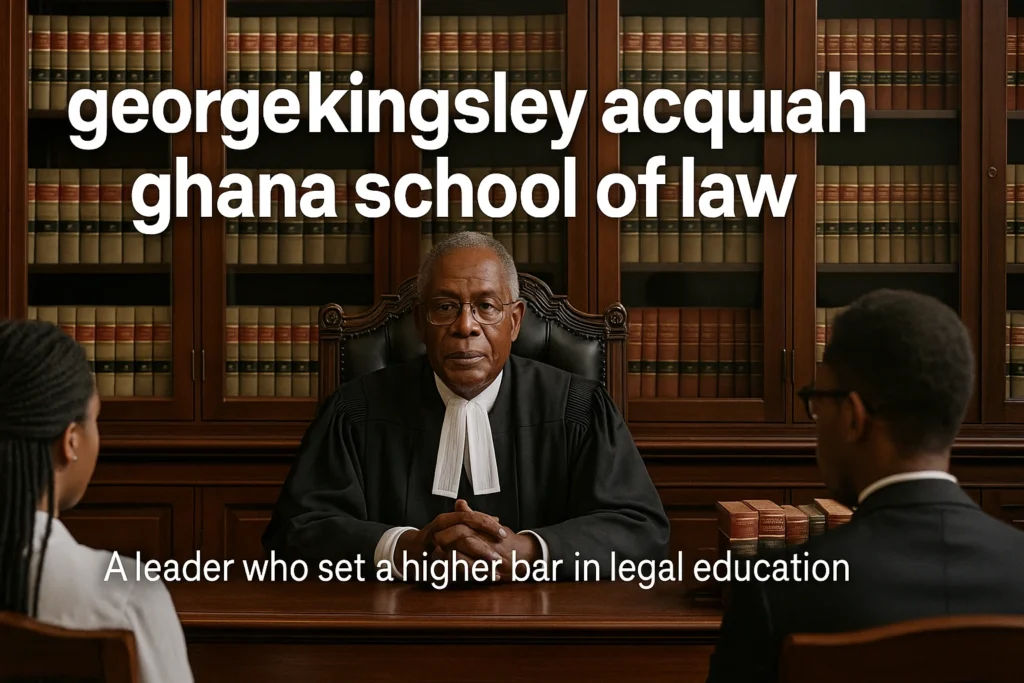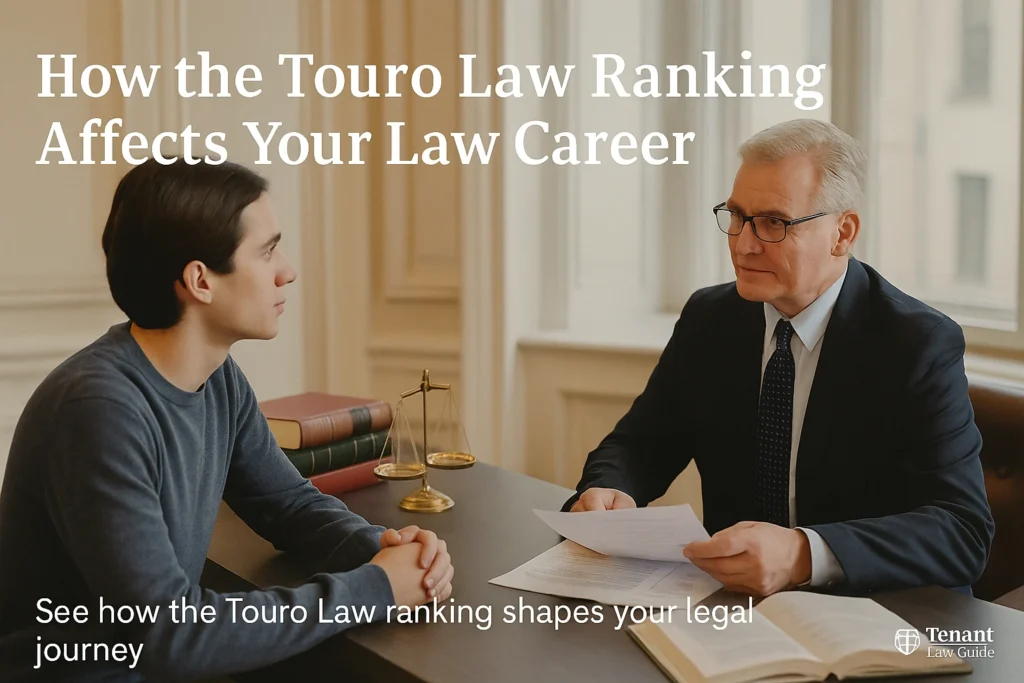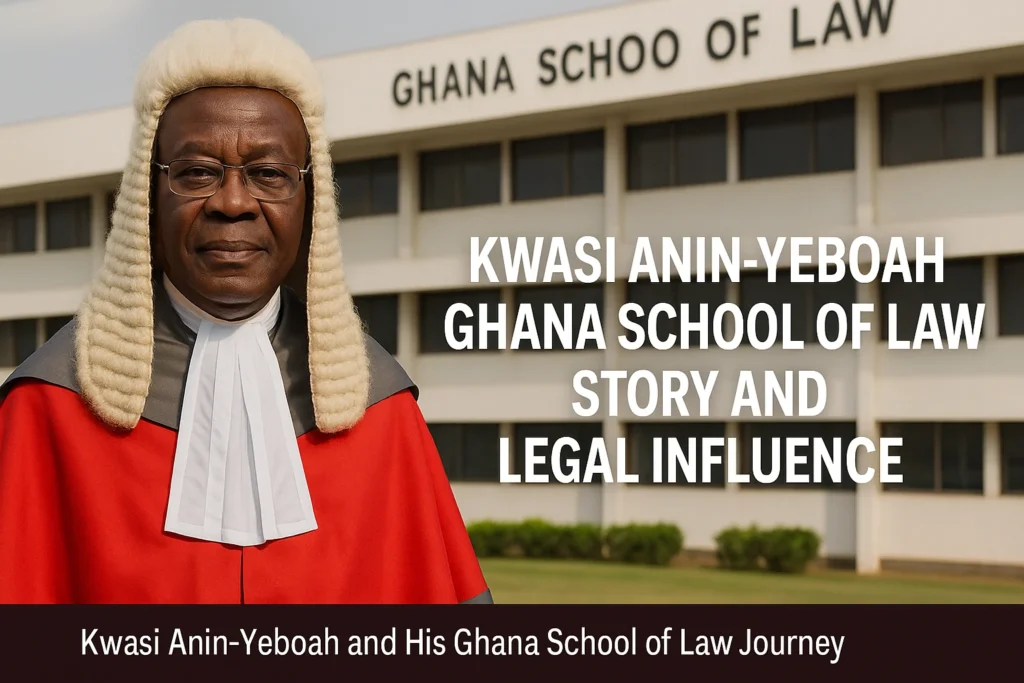George Kingsley Acquah stood tall in Ghana’s legal life. He rose from modest roots and reached the highest court. His voice carried weight because he spoke with care, courage, and plain sense.
Many citizens saw in him a judge who loved truth and respected people. Many lawyers saw in him a mentor who set clear standards and lived by them.
The Ghana School of Law shaped part of his path. He, in turn, shaped the school’s hopes and habits. His work touched lecture halls, libraries, court registries, and public service desks.
This article looks at his life, his link to the school, and the mark he left on justice in Ghana. It aims to guide students, young lawyers, and readers who value honest leadership.
Early Years and Education
George Kingsley Acquah came from Sekondi, a coastal city with deep civic pride. His home valued schoolwork and good conduct. He read widely and asked sharp questions.
Teachers saw a steady mind and a calm spirit. He learned to respect rules yet think beyond them when fairness called for it.
He entered the University of Ghana with clear goals. Law drew him because it offered order, reason, and service. He studied hard and earned his degree with strong marks.
Classmates recall discipline without harshness and ambition without vanity. He helped others, shared notes, and stayed on task.
The next step was the Ghana School of Law. That step mattered. The school gave him courtroom skills, case analysis, and the ethics of practice.
He learned how to argue with logic and how to step back when the heat rose. He saw that law demands both heart and craft. Those lessons stayed with him in every role he took later.
Entering Practice and the Judicial Path
He began in private practice. Clients trusted him because he listened, explained the law in simple terms, and kept his word. He prepared each file with care and met deadlines.
He took the hard cases no one wanted and handled them without show. His method was simple: know the facts, know the rule, and tell the truth.
The Bench soon called. He accepted the duty with quiet resolve. As a judge, he kept hearings focused and fair. He wrote clear rulings that any reader could follow.
Lawyers left his court knowing why they won or lost. He did not use sharp language. He let the reasons speak.
Promotion followed. Each step added weight, but his habits did not change. He still reads late. He still asked direct questions.
He still measured each order against common sense and the Constitution. The robe did not change the person. It only widened the reach of his service.
Chief Justice and System Reform
He became Chief Justice in a period that needed reform. Courts faced delays, file loss, and low public trust. He saw the damage and chose action.
He pushed registries to keep better records. He set timelines and asked heads of divisions to enforce them. He wanted justice to move, not crawl.
He urged simple forms and cleaner procedures. Clerks received fresh guidance. Judges received support and honest feedback.
Court users saw shorter queues and clearer notices. None of this felt flashy. All of it felt real. People began to say, “The system hears us again.”
He did not try to fix every flaw in one day. He set a plan and stuck to it. He backed legal aid, case tracking tools, and peer learning for judges.
He stayed firm on ethics. He removed fear from court corridors and replaced it with order. Progress came in steady steps that did not slip back.
Bond with the Ghana School of Law
His link with the school stayed strong. He visited, spoke, and listened. He asked faculty to keep courses close to real practice.
He praised deep reading but warned against empty show. He told students to see beyond grades and look toward service.
Libraries grew during this period. The school added core texts and reported judgments. Students gained access to materials that once sat only in court vaults.
Research became easier. Moot courts became sharper. Seminars drew judges, senior lawyers, and policy leaders. The school felt more alive because the courts and classrooms spoke to each other.
He urged the school to teach ethics as a living course. He asked teachers to use real scenarios from Ghanaian life.
He wanted students to see the client who could not pay, the witness who feared reprisal, and the child who needed a voice. Law, in his view, was not a game. It was a promise.
Teaching, Mentorship, and Professional Conduct
He taught with stories, not slogans. He used facts from past trials and showed how small choices change outcomes.
He told students to write short sentences and avoid empty words. He reminded them that a judge must hear both sides with the same patience.
Many young lawyers sought his counsel. He gave time without fuss. He read draft briefs and marked them in the margin.
He could point out one weak line and save a case. He never mocked. He guided. He wanted learners to grow, not freeze.
Professional conduct sat at the center of his creed. He warned against fake bills, late filings, and loose talk.
He told students that a lawyer’s name is a long-term asset. Once lost, it rarely returns. He showed that dignity rests in small acts done well day after day.
Access to Justice and Public Service
He viewed access as the soul of a legal system. He urged wider legal aid and clearer court fees. He asked for help desks at busy registries.
Citizens with simple questions found staff who gave straight answers. This built trust. People came back because the first visit did not feel like a wall.
He supported outreach in rural areas. Law clinics visited towns and helped citizens understand land rights, family matters, and basic procedures. The school sent teams. Courts opened their doors to student volunteers. Communities felt seen.
He believed that the law must protect the weak. He pressed for fair treatment in cases that involved women, children, and the poor.
He reminded judges that the robe does not shield them from the duty to care. He believed mercy and firmness can live in the same judgment.
Modernization and Court Management
He backed up steps that cleaned records and secured files. Case lists moved from loose sheets to organized ledgers and, where possible, digital tools.
Judges could view their dockets with fewer gaps. Lawyers could plan hearings with better notice. This cut waste and cooled tempers.
He supported simple courtroom rules. Start on time. Keep the room quiet. Respect every party. Give reasons on the day if possible.
He wanted each court to look like a place of order, not a hall of confusion. These small rules added up to a better user experience.
He asked senior judges to share their experience with newer hands. Bench conferences became real spaces for growth. Tough issues moved from rumor to honest dialogue. The goal stayed the same: fair results in a reasonable time.
The Ghana School of Law as a Public Trust
He viewed the school as a national trust. Not every student would wear silk or sit on the Bench.
Many would serve in ministries, firms, chambers, companies, and NGOs. All of them needed the same habits: clear thought, steady nerves, and clean hands.
He liked to say that the best lawyers know people, not just books. He asked the school to keep clinics, moot courts, and internships strong.
He praised students who took hard seats in legal aid and did not quit. He wanted the next generation to learn courage early.
Faculty answered this call. Courses on advocacy, ethics, and procedure grew sharper. Guest lectures linked doctrine to daily life.
Alumni returned to teach skills that the books only hint at. The school’s culture moved toward purpose and pride.
Influence Beyond Ghana
His reach did not stop at Ghana’s borders. He joined regional forums and shared practices that saved time and money.
He learned from peers and brought back what worked. He showed that Ghana could lead with quiet strength and honest results.
Law students saw this global posture and felt new confidence. They realized that strong local habits can meet global standards.
They saw that a court in Accra can hand down work that earns respect abroad. This widened the school’s horizon without losing its roots.
His message stayed simple in these circles: protect fairness, explain reasons, and treat every person with respect. These rules travel well. They suit any court that wants trust.
What Today’s Students Can Learn
Students can draw clear lessons from his life. Start with humility. Prepare well. Speak plainly. Do not rush to impress. Aim to help. The craft will follow. The respect will come.
Young lawyers can choose clients with care and charge fair fees. They can say “I do not know” and then go learn.
They can keep deadlines and dress with respect for the court. These acts do not make headlines. They build a career that lasts.
Teachers can model these habits. Set clear tasks. Mark with honesty. Praise effort. Correct error without cruelty.
Link theory to practice. Invite judges and senior counsel to class. Keep the door open to questions that look small but matter.
Lasting Recognition and Memory
He passed in 2007, yet his work still guides the bar and the bench. The Ghana School of Law keeps his memory in scholarships, talks, and public events.
Courts still cite his rulings for clarity and balance. His speeches appear in study packs and faculty notes.
His name evokes service, not show. It evokes calm strength, not noise. It evokes a duty to the poor, a duty to the law, and a duty to the truth. That is a rare mix. That is why his legacy endures.
His life also offers comfort. A person can start with little and still reach far. A judge can wield power and still stay kind.
A school can teach rules and still teach heart. These truths ease fear and guide hope.
Final Words
George Kingsley Acquah gave Ghana a gift that time does not fade. He made the courts more open and fair. He made legal study more honest and more useful.
He set a standard that asks for skill and soul at once. He showed that justice is not a slogan. It is a daily craft.
The Ghana School of Law carries this gift into each new class. It trains advocates who know people as well as books.
It forms judges who explain reasons with care. It sends out public servants who place duty above gain. This is the legacy that endures.
Readers who seek a model can start here. Work hard. Speak plainly. Keep faith with the law and with the people it serves.
A nation grows strong when its courts, its schools, and its citizens choose this path. George Kingsley Acquah walked it. Others can follow.
Disclaimer: This post shares general information on legal education in Ghana. It is not legal advice. Please consult official sources or a licensed lawyer for guidance.



